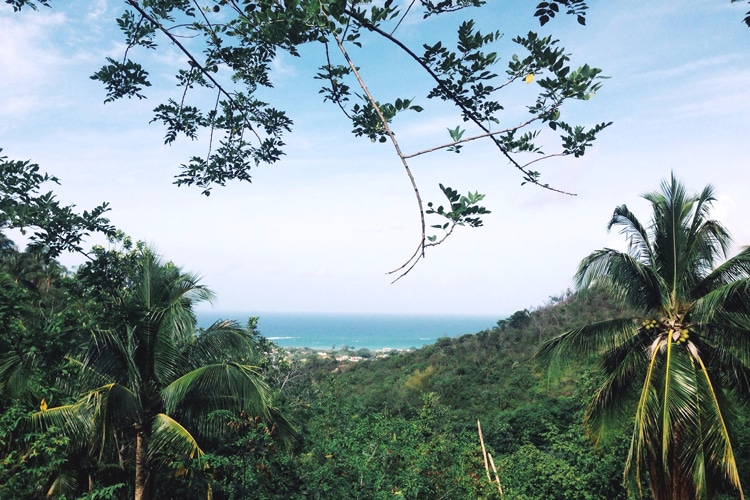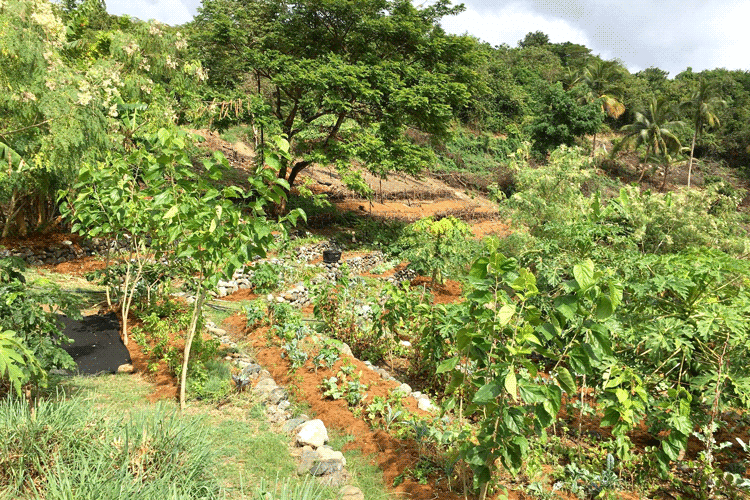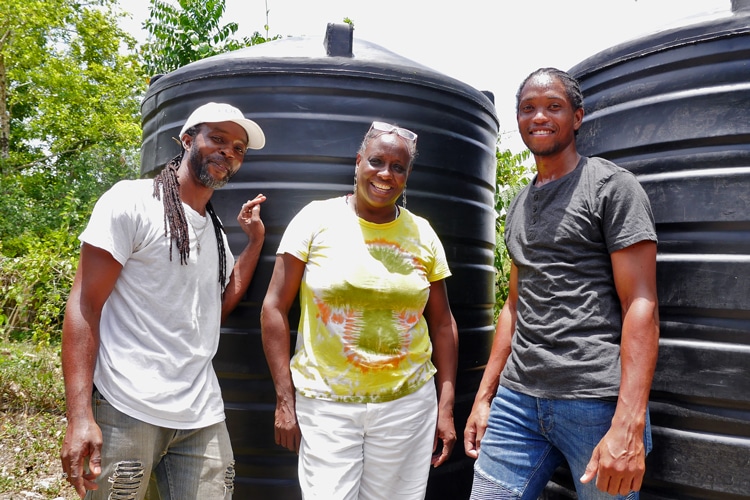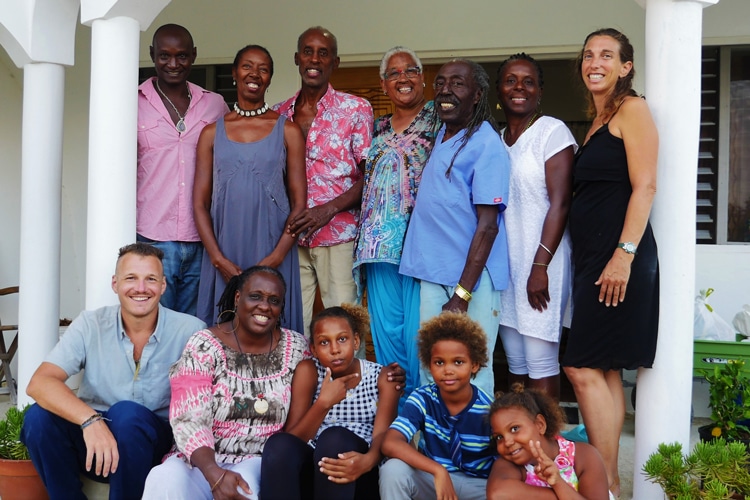Jamaica (Johns Town)
The Source farms in harmony with the land, its flora and fauna, and its local community.
In the Saint Thomas parish in southeast Jamaica you can find a farm and ecovillage called The Source. It’s technically in the town of Retreat, although it considers itself part of nearby Johns Town. Trails run through the 63-acre property dotted with buildings and even a tropical spring. There’s also farmland and trees; hundreds of trees. Coconut palms, avocado trees, lime, banana, pineapple, mango, and more.

The Source is a multicultural and intergenerational ecovillage. The farm provides organic food to the surrounding community while respecting and creating balance and harmony between plants, animals, and humans. Their goal is “a more appropriate agroforestry approach that will allow for the regeneration of the forest while creating an income stream,” says one of the organization’s leaders, Nicola Shirley-Phillips.
Climate change poses a real challenge to Jamaica due to its “small land mass, fragile ecosystem, high dependence on food imports and increasing impacts of frequent natural disasters.” Meanwhile, agriculture’s contribution to Jamaica’s GDP has declined over the past two decades, measured at just over 5% in 2009. Many small farms are on steep slopes, where inappropriate farming practices lead to soil erosion, degradation and loss in biodiversity.

Farming according to permaculture principles at The Source Farm. Photo: Julio Porter Nero
“There is a major lack of understanding and education on tropical soils and appropriate methods of how to cultivate in tropical and subtropical zones,” says Shirley-Phillips. The North American model of farming implemented in the past is not appropriate for Jamaican land, she continues, and there’s a real and urgent need for trees and tree crops to help hold the remaining soil.

The breadfruit water project. Photo: Michele Geister
Founding member Dwight Shirley is also the Head Farmer. A backyard gardener for many years with a natural affinity to plants, he’s certified in (and applies) permaculture design. Their yield includes table vegetables, fruit from the farm’s ample orchards, medicinal plants, mushrooms, herbs and flowers—there’s also a thriving bee population. Old and new techniques are mixed, with indigenous practices like guild planting and intercropping paired with mapping technology, soil and water testing and farm software.
Beyond the farm The Source is also an ecovillage with residences, communal spaces, school structures, a healing centre, and much more. There are up to 20 people on site working or visiting, and it welcomes work exchanges (within guidelines). It builds community and hopes to educate through retreats for residents and guests, workshops, spiritual practice sessions, and a wellness centre.

The Source Farm community: multicultural and intergenerational. Photo: Michele Geister
The ecovillage also houses a foundation that acts as a community economic development incubator and aims to be a catalyst for change in St. Thomas. The foundation has already fostered the George William Gordon Organic Research Station, the Ujima Natural Growers Group, and the Ujima Farmers Market—the only organic market on the island, says Nicola Shirley-Phillips.
Looking to the future, The Source wants to establish The People’s Seed Project. The pandemic has highlighted the need for improved food security, says Shirley-Phillips, but it has “also shown how interconnected we are as a people.” There’s no local seed bank at present and finding seeds is a serious challenge. There are, however, seeds of possibility, she says, seeds that The Source is literally sprouting and saving.
AtlasAction: They’re currently looking for volunteers to help with the seed project at the GWG Organic Research Station (hint, hint).
Bio
Reporter and producer based in Ireland and, sometimes, Barcelona where she contributes to BCN Més. Originally from Italy, she has also lived in and reported on the United States, France and Spain.
Project leader
Nicola Shirley-Phillips, member
Support the Atlas
We want the Atlas of the Future media platform and our event to be available to everybody, everywhere for free – always. Fancy helping us spread stories of hope and optimism to create a better tomorrow? For those able, we'd be grateful for any donation.
- Please support the Atlas here
- Thank you!

